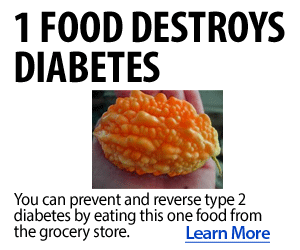Most items of food contain carbohydrate, protein and fat. Cereals are rich in carbohydrate. Lentils, lean meat, chicken and fish are rich in protein. Oils, nuts and milk cream are rich in fats. Fats are rich in calorie. 1g of fat provides 9 calorie, while 1g of carbohydrate and 1 g of protein provide 4 calorie. Carbohydrate is easily digestible among the three. The rise in blood glucose after a meal is due to absorption of glucose from a carbohydrate digestion and increase in production of glucose by liver. Sucrose [cane sugar], sweets and syrups cause a rapid rise in blood glucose than whole cereals.
In people with no diabetes, the rise in blood glucose after a meal, comes down to pre-meal level within 2 hours. In diabetes, the rise in blood glucose is not only higher but the fall toConcentration of blood glucosepre-meal level is slower. It takes about 3-4 hours. Therefore snacks in between meals or frequent meals at short intervals tend to cause progressive increase of blood glucose in people with diabetes.
Glucose is constantly needed to provide ready energy for th function of the brain, heart, kidney and liver blood cells. When glucose is not available from ingested food, our liver produces from its store of carbohydrates[glycogen] and from fat and protein stored by the body. The liver produce about 3 gm of glucose/kg body weight in a day. so the liver of a man or woman weighing 70 kg produces over 200 gm of glucose in a day. This production of glucose by the liver is kept in check by small amounts of insulin secreted by pancreas.
GENERAL GUIDLINES ON DIET
1] In a typical day’s meals and snacks, you should have 1500 to 1800 calories. In this there should be 60% contribution by carbohydrates, 20% from fat and remaining 20% by protein. You may need extra calories for your physical work or less calories if you are on weight reduction. If on the other hand, you are on calorie-restricted diet, make sure that you take 50-60% of calorie as complex carbohydrate[Whole cereals] to prevent any feeling of weakness.
2] You should eat a variety of items of food every day. Do not skip a meal. Eat at roughly the same time each day. Eat several[5-6] small meals in a day rather than a large three meals a day. Do not go more than three or four hours without eating. Avoid snacks, unless you are advised so[as like during insulin treatment]. do not over eat.
3] Eat fruits and vegetables. Use less oil in cooking. Eat less, or avoid fFruits and vegetablesried foods, milk cream or food cooked in fat rich medium.
4] Avoid ready to eat food preparations and, sweets and sugary drinks [canned beverages] that provide empty calorie [no vitamins or essential minerals].
5] Eat fewer foods high in sugar, like fruit juices, fruit-flavoured drinks, sodas[colas], tea/coffee with sugar.
6] Keep a regular check on your weight and maintain this within the estimated limit.
7] Restrict protein consumption after you are informed about your kidney damage.
8] Limit use of caffeine through tea/coffee/diet colas and also alcohol.
9] Drink eight glass of water[including intake of other beverages] each day to avoid dehydration which is particularly dangerous in people with diabetes.
10] Check your hemoglobin and protein in blood samples at 6 months or a year’s interval. You may have to take suitable correction in diet or supplementation.
11] Despite a good control of blood glucose, if your blood lipids are high, you will need lipid lowering drugs regularly.
a] Total cholesterol should be below 180 mg/dl
b] LDL cholesterol should be below 70-100 mg/dl
c] HDL cholesterol should be above 40 mg/dl in men and above 50 mg/dl in women.
d] Triglyceride less than 150 mg/dl.
Sometimes, these lipid lowering drugs may be advised from the beginning of your diabetes treatment, by your doctor.
12] Match your mealtime to the type of insulin and insulin injection schedule, as adviced by your doctor.
13] Increase the amount of dietary fibers in your diet with whole cereals, lentils.
14] Eat fewer foods that are high in salt, like canned and packaged soups, pickles and processed meat.
SIMPLE THINGS FROM YOUR HOME KITCHEN
A few dietary supplements that you can take and see better sugar control and fewer complications too.
a] Soy isoflavons contain genestein that improve natural insulin secreation. They also help reduce abdominal fat. Both have a salutary effect in diabetes.
b] Allicin, an extract from garlic, has been researched extensively. Its lipid and blood sugar lowering effects make it a good supplement for diabetes. Other benefits are its antimicrobial action and anticancer action.
c] Green tea is also another wonderful supplement. Epicatechin from green tea and other sources can hGreen Teaelp prevent or delay kidney complications in diabetes. They also reduce stroke and cardiac risk, correct LDL-HDL ratio, reduce abdominal fat by increasing levels of adiponectin. A further bonus is a reduced risk of poor memory-related problems. When combined with theaflavins, again from green tea, these effects are more marked.
d] Anti-oxidants are another group of supplements, found in fruits and vegetables that prevent oxidative damage, which can otherwise cause retinal problems, atherosclerosis etc.,
e] Omega-3 fatty acids are also helpful in lowering blood fat, preventing ischemic heart problems and strokes besides improving bone, joint and skin health and boosting immunity.





No Comments Yet